Table of Contents
ToggleIntroduction
Cognitive improvement is within your grasp through the strategic use of targeted supplements designed to elevate brain function and mental clarity.
Delve into the realm of cognitive enhancement with key nutrients like omega-3 fatty acids for brain protection, creatine for memory and focus, caffeine for alertness, L-theanine for calm concentration, vitamin D for overall brain health, choline for cognitive support, resveratrol for neuroprotection, and lion’s mane mushrooms for brain cell growth.
This comprehensive approach empowers you with the knowledge and tools to boost your cognitive performance and achieve a sharper mind.
Ready to enhance your mental capabilities? Let’s explore how these supplements can contribute to your cognitive enhancement efforts.
Key Takeaways:
- Supplements can support cognitive health and mood by filling nutrient gaps in the diet.
- Omega-3 fatty acids, caffeine, L-theanine, and vitamin D are some of the top supplements for cognitive improvement.
- These supplements have been shown to enhance memory, improve focus, and protect against cognitive decline.
- A balanced diet and a healthy lifestyle are crucial for optimal brain health and cognitive function.
- Consult with a healthcare provider before starting any new supplements to ensure they are safe and appropriate for your individual needs.

Omega-3 Fatty Acids
In our pursuit of cognitive improvement, these crucial nutrients, particularly DHA (docosahexaenoic acid) and EPA (eicosapentaenoic acid) stand out as the foremost supplements recommended for enhancing brain health.
By actively reducing inflammation and shielding our brains from cognitive decline, omega-3 fatty acids play a pivotal role.
They are indispensable not just for brain and eye development but also for their potential in preventing neurodegeneration.
Incorporating omega-3s into our diets has been shown to diminish the risk of cognitive decline and bolster brain health overall.
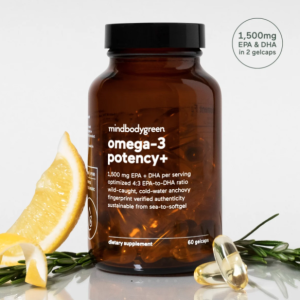
Wondering how much omega-3 you need for optimal cognitive function? Striving for a daily intake of 1.1 to 1.6 grams of omega-3 fatty acids can unlock numerous cognitive benefits.
Beyond just nurturing brain health, omega-3 fatty acids also contribute to our overall well-being.
Creatine
For cognitive improvement, creatine supplementation has recently risen in popularity, not just for boosting athletic performance but also for its promising benefits in enhancing brain function and memory.
Research now reveals that creatine actively supports the brain’s recovery from injuries by encouraging the regeneration of damaged cells.
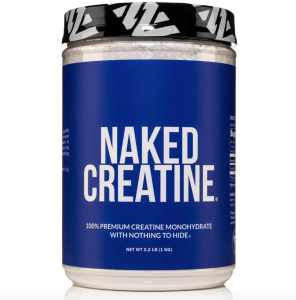
Moreover, it boosts cognitive functions such as memory, attention, and processing speed.
What’s more, creatine offers neuroprotective benefits, actively safeguarding the brain against neurodegenerative diseases like Alzheimer’s and Parkinson’s.
It achieves this by reducing oxidative stress, improving energy metabolism, and stimulating the production of brain-derived neurotrophic factor (BDNF), a crucial protein for the development and maintenance of brain cells.
Regarding dosage, it’s essential to adjust creatine supplementation according to body weight, with the general recommendation ranging from 3 to 5 grams daily.
Always adhere to the manufacturer’s dosing guidelines or consult a healthcare professional to ensure safety and prevent any potential risks to the liver or kidneys.
Caffeine
Caffeine actively enhances cognitive improvement, boosting alertness, concentration, and mood, while also lowering the risk of cognitive decline and Alzheimer’s disease.
It’s widely celebrated for its remarkable effects on cognitive performance.
To harness these benefits effectively, it’s essential to consume caffeine responsibly.

Enjoying caffeine in moderation is key; this way, you can avoid potential side effects such as restlessness, insomnia, and heart palpitations.
Finding your ideal caffeine intake can significantly contribute to your mental alertness and overall well-being, making it a valuable ally in your quest for cognitive enhancement.
Remember, a little can go a long way in sharpening your mind and elevating your mood.
L-Theanine
For cognitive improvement, L-theanine, an amino acid present in green and black teas, can boost your mental performance and focus.
By taking L-theanine before engaging in tasks, you can decrease errors and enhance your cognitive function, as studies reveal.
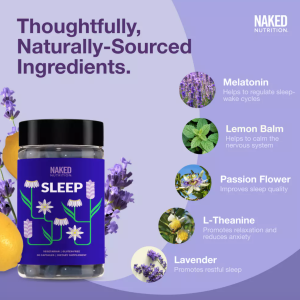
The secret behind L-theanine’s effectiveness lies in its ability to increase alpha brain waves, which are key to achieving relaxation and alertness simultaneously.
This effect cultivates a calm yet focused state, enabling you to improve your concentration and mental performance significantly.
Beyond enhancing focus, L-theanine also offers the advantage of reducing anxiety and stress without leading to drowsiness.
This makes it an excellent choice for anyone aiming to bolster their cognitive abilities in a balanced way.
Regarding dosage, while there’s no one-size-fits-all recommendation, research typically points towards daily doses ranging from 100 to 250 milligrams of L-theanine.
Vitamin D
For cognitive improvement, studies have linked Vitamin D deficiency to a range of conditions, including dementia, depression, autism, and schizophrenia, highlighting the importance of this vital nutrient.
Our bodies naturally produce Vitamin D when we expose our skin to sunlight, making sun exposure a primary source.
Yet, during the winter months or for those with limited sun exposure, taking supplements can be a great way to maintain adequate Vitamin D levels.
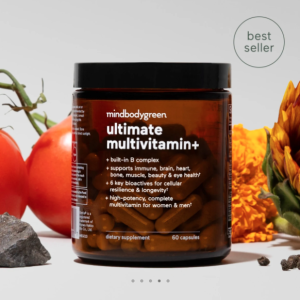
Most adults should aim for a daily Vitamin D intake of between 600 to 800 IU, though the ideal dose may differ based on your age, overall health, and specific needs.
Boosting your brain health and cognitive function with Vitamin D supplementation is particularly beneficial if you’re not getting enough natural sunlight.
Don’t forget, you can support your Vitamin D levels by eating foods rich in this nutrient, such as fatty fish, milk, and fortified cereals, ensuring your brain stays healthy and functions optimally.
Choline
To enhance cognitive improvement, incorporating choline into your diet is key.
This essential nutrient significantly boosts brain health and cognitive function by facilitating the production of acetylcholine, a neurotransmitter critical for memory and cognition.
Studies highlight that ensuring you consume enough choline can decrease your risk of cognitive decline.
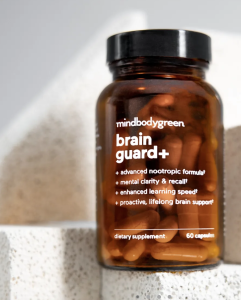
You can find rich sources of choline in foods like eggs, liver, and specific fish varieties such as salmon and cod.
But, if you’re finding it hard to get enough choline from your diet alone—maybe due to lower dietary intake or particular health conditions—considering choline supplements could be a beneficial step to bolster your memory and cognitive health.
Resveratrol: Protecting Your Brain and Enhancing Memory
For cognitive improvement, resveratrol could be the natural solution you need to protect your brain cells and enhance memory.
Found in grapes and red wine, this compound delivers brain-boosting benefits, improving blood flow, guarding against damage, and decelerating cognitive decline.

Resveratrol, as a powerful antioxidant, fights oxidative stress and inflammation, both major factors in brain aging and cognitive decline.
It shields your brain cells by reducing these damaging processes, thereby promoting overall brain health.
Studies reveal that resveratrol can boost blood flow to the brain, ensuring it gets enough oxygen and nutrients.
This boost in blood flow enhances cognitive functions, supports memory, and lifts overall cognitive performance.
Beyond protecting the brain, resveratrol offers additional health benefits, including improving cardiovascular health and potentially increasing longevity.
The recommended daily intake of resveratrol is up to 1,500 milligrams.
However, it’s crucial to remember that high doses might lead to stomach upset, and those about to undergo surgery or on blood thinners should steer clear of it.
Always consult a healthcare professional before beginning any new supplement, including resveratrol, to confirm its safety and suitability for your health needs.
Lion’s Mane Mushrooms
Lion’s mane mushrooms, also known scientifically as Hericium erinaceus, are edible fungi celebrated for their potential health benefits.
Traditionally, people have turned to these mushrooms to boost memory and enhance focus and concentration.

Packed with bioactive compounds that bolster brain function and cognitive health, lion’s mane mushrooms particularly shine due to their hericenones content.
These compounds boost the production of nerve growth factor (NGF) in the brain, a crucial player in nerve cell growth and survival, paving the way for improved memory and neuroprotection.
Research suggests that lion’s mane mushrooms can also dial down brain inflammation, offering a boost to cognitive function.
Since chronic inflammation is a known villain in cognitive decline and neurodegenerative diseases, the mushrooms’ anti-inflammatory prowess stands as a guard against these threats.
Moreover, lion’s mane mushrooms have shown promise in easing symptoms of anxiety and depression, conditions that can cloud memory and focus.
By tackling these conditions’ root causes, the mushrooms not only improve mental health but may also sharpen cognitive abilities.
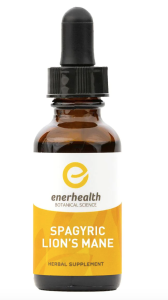
When it comes to dosage, aiming for 250 to 1,000 milligrams of lion’s mane mushrooms daily is a good rule of thumb.
You can find them in various forms, such as capsules, extracts, and powders.
Adding lion’s mane mushrooms to your daily regimen could be a game-changer for enhancing memory, focus, and overall cognitive function.
Remember, though, supplements work best as part of a holistic approach to wellness, alongside a healthy diet, regular exercise, and a balanced lifestyle.

A Word from HealthyVibe
To maximize your cognitive health and overall mental well-being, incorporating specific supplements into your daily regimen can be a strategic move.
Omega-3 fatty acids, creatine, caffeine, L-theanine, vitamin D, choline, resveratrol, and lion’s mane mushrooms each offer unique benefits, from enhancing memory and focus to protecting against cognitive decline.
Remember, though, that these supplements are companions to—not replacements for—a balanced diet and healthy lifestyle.
Always consult with a healthcare professional to tailor your supplement intake to your personal needs, ensuring you achieve the best results safely.
What are the top mental health supplements for cognitive improvement?
The top mental health supplements for cognitive improvement include omega-3 fatty acids, creatine, caffeine, L-theanine, vitamin D, choline, resveratrol, and lion’s mane mushrooms.
What are the benefits of omega-3 fatty acids for brain health?
Omega-3 fatty acids reduce inflammation, protect against cognitive decline, and are crucial for brain development. They have been shown to help protect against neurodegeneration and reduce the risk of cognitive decline.
How does creatine supplementation improve brain function and memory?
Creatine supplementation has been shown to aid in brain recovery, improve cognition, and protect against neurodegenerative diseases.
What are the neuroprotective benefits of caffeine?
Caffeine can increase alertness, improve concentration and mood, and reduce the risk of cognitive decline and Alzheimer’s disease.
How does L-theanine help with mental performance and focus?
L-theanine, found in tea, has been linked to improved mental performance and focus. Studies have shown that it can reduce errors and improve cognitive function.
How does vitamin D affect brain health and cognitive function?
Vitamin D plays a crucial role in brain health and is essential for good cognitive function. Deficiency in vitamin D has been linked to conditions like dementia and depression.
How does choline support memory and cognition?
Choline supports brain health by helping produce a neurotransmitter important for memory and cognition. High choline intake has been associated with a lower risk of cognitive decline.
What are the brain-protective effects of resveratrol?
Resveratrol, found in grapes and red wine, can help improve blood flow to the brain, protect against damage, and slow down cognitive decline.
How do lion’s mane mushrooms enhance memory and focus?
Lion’s mane mushrooms support oxygen flow to the brain and can improve memory, focus, and concentration.
Are supplements for cognitive improvement a substitute for a healthy diet and lifestyle?
No, supplements should not replace a balanced diet and lifestyle. They fill nutrient gaps, but a healthy diet and lifestyle are still crucial for brain health.









